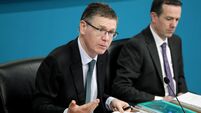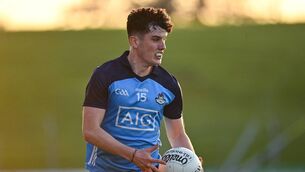Shane Smith: Our challenge as adult coaches is to look at coaching through the lens of the child

Children thrive on positive reinforcement. They want to hear “that’s brilliant”, “great effort”, “you are doing so well”.
Government buildings just after 6pm. Taoiseach Micheál Martin had just unveiled the most recent amendments to lockdown measures. He had just picked up that all too familiar government document and turned to face those all too familiar steps. Then my phone beeped. A message from a friend, “Great news, we’re back training on the 26th, my lads have a lot of catching up to do, any advice?”. Another eager, yet similar conversation took place a few days after with another friend, “Back training soon thank god, they’ll be half the players they were”. The teams were U12 and U10 respectfully.
The enthusiasm shown by the coaches probably illustrates just how much they’ve missed coaching. Haven’t we all. We love it. If we didn’t, we wouldn’t do it! In the meantime, we have been upskilling our knowledge with coaching books, webinars, and coaching podcasts. We have been finding ways to improve and explore new coaching concepts and ideas. Many now have an array of new warm-ups, games and skills sessions ready to go. They have been hastily scribbled on notepads during Zoom coaching presentations and now we can finally put them into action. We are looking forward with optimism.











